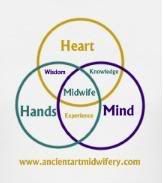My newest article 1 of 3
I just had published my 1st of 3 series articles published in the BAMBI magazine. So exciting to open up the magazine and see it in print!
Here it is:
Breastfeeding Your Toddler
By Erin Kannon
When I started on my breastfeeding journey over five years ago, I did not know a single woman who had breastfed her baby for more than a year. I was not aware that nursing a toddler was an option! As I read more about breastfeeding and had such success nursing my firstborn, I did not want to force my daughter to wean and learned that many women breastfeed past one year. During my research I was surprised to find that the World Health Organization (WHO) recommended breastfeeding for at least two years.
Breastfeeding a toddler can be a satisfying experience. Your breastmilk offers optimum nutrition because it contains everything your baby needs that he is not getting from solid foods, especially when he reaches the finicky or picky eating stages. Breastmilk will also promote better health past infancy as your body passes on antibodies as it did in the early months. You can expect fewer ear infections, more resistance against infection, fewer allergies, better dental health, a stronger immune system (from bloodstream to respiratory system to intestinal tract), and fewer skin problems such as eczema. If your child does become ill, breastmilk aids in hydration and is easily digested.
When breastfeeding a toddler, there are a few things that you need to keep in mind. Breastfed babies and toddlers tend to grow slower and do not “measure up” on growth charts. Remember that these growth charts are based on formula fed babies or toddlers that are weaned and drinking cow milk. Iron-rich foods are needed after one year as iron absorption is reduced after the addition of solids. Cavities are rare from breastfeeding at night but remember that you still need to practice normal dental hygiene with your toddler.
The toddler years are a time of emotional development for your toddler. Breastfeeding during this phase aids in attachment to the mother while feeling safe to explore and gain independence. You can also calm a child easier when he becomes hurt, is teething (natural analgesic), or needs to take a nap or go to bed.
Breastfeeding during the toddler years goes through phases. During the second year (13 to 24 months, the toddler is still more like a “baby” and will continue to breastfeed frequently. Many toddlers at this stage go through a “nursing strike”. Assume that your child is not ready to wean and look for other areas of discomfort such as a stuffy nose, sore mouth, or broken tooth. Also use this phase to teach a nursing code word, such as “Milkies” or “NumNums” or as it is in my house, “Mama Milk”. Expect your toddler to want to experiment with a variety of breastfeeding positions and want to use his hands all over the place, including your hair, belly button, ear, your other nipple, or his lunch. Consider using a “nursing necklace”, toy, or stuffed animal to help redirect those hands.
Breastfeeding through the “terrible twos” (24 to 36 months) can help to head off tantrums. Tantrums are usually a result of a situation that feels tense for a toddler who cannot yet communicate his needs. Breastfeeding can diffuse the situation and also help you calm down as well! Frequent breastfeeding at this age can come from stress, over-stimulation, or boredom. At this phase expect your toddler to discuss breastfeeding with you. He is old enough to understand any breastfeeding rules you may have such as waiting until naptime or after dinner.
 Some women continue to breastfeed their toddlers when they reach three years old. A nursing strike at this age could be weaning. Many women find it easier to breastfeed at this age compared to the two year old stage. Expect to have more conversations during breastfeeding. Last week I was breastfeeding my son (he’s three) and he stopped to tell me “I fight dragons!!!” and went right back to eating! This is usually the age when toddlers will discuss breastfeeding and think about when they want to stop. You are definitely not nursing a baby anymore. If your child is breastfeeding at the age of four and beyond, he is still enjoying the time he spends with you and continues to receive the benefits of breastmilk. Breastfeeding will become a memory for your child.
Some women continue to breastfeed their toddlers when they reach three years old. A nursing strike at this age could be weaning. Many women find it easier to breastfeed at this age compared to the two year old stage. Expect to have more conversations during breastfeeding. Last week I was breastfeeding my son (he’s three) and he stopped to tell me “I fight dragons!!!” and went right back to eating! This is usually the age when toddlers will discuss breastfeeding and think about when they want to stop. You are definitely not nursing a baby anymore. If your child is breastfeeding at the age of four and beyond, he is still enjoying the time he spends with you and continues to receive the benefits of breastmilk. Breastfeeding will become a memory for your child.You also benefit from breastfeeding for more than a year. You will have stronger bones and a lower risk of breast and other cancers. Breastfeeding can also suppress menstruation which helps with natural child-spacing. Note: You can NOT rely on breastfeeding your toddler for contraception! It is important for you to have good nutrition. Focusing on protein, calcium, iron and zinc will help you to continue producing a quantity of milk. One side affect of nursing a toddler is also a side affect when nursing infants: lower estrogen levels resulting in vaginal dryness. This may also decrease your interest in sex when the decreased hormones are combined with fatigue and sense of “constantly being touched” or “touched-out”.
A common breastfeeding difficulty that continues into the toddler years is nipple discomfort. It is still possible to get mastitis or thrush (yeast) so continue regular hygiene but no soap on the nipples. If you are pregnant again, expect to feel some tenderness. Discomfort can also come from the toddler teething. Work with your child’s latch and make sure that he knows how to let go of your nipple without grazing it with his teeth. “Gymnastics nursing,” when your child decides to breastfeed in any sort of creative position, can also lend to some discomfort as well.
Depending on your culture and where you live, you may or may not have to deal with criticisms of breastfeeding a baby past one year. Pressures from family, partner, or strangers can make you feel like weaning for not doing what everyone else does. Remember that breastfeeding your toddler is a mutual choice for both you and your child. You can choose to breastfeed in public or in private. Older toddlers can be delayed or use a “code” word for nursing. Any doubts can be overcome when you see that your child is happy, learning, and growing. This is chance for you to educate others about the benefits of extended breastfeeding and the recommendations by the WHO to breastfeed for longer.
At some point during your breastfeeding relationship with your child you will consider weaning. If you become pregnant you may or may not want to wean, but it is possible to continue breastfeeding during pregnancy. As your milk changes, your child might not like the taste and decide to wean on his own. If you feel that you need to wean, you can choose to do so gradually. Abrupt weaning is usually not easy for the child and can cause engorgement for you.
When do most children wean? Consider that our ancient ancestors breastfed for at least two to three years. Large mammals wean when their birth weight is quadrupled. For humans, this is two to three years old. Large primates wean when they reach 6 times the length of gestation, about 4.5 human years. Ultimately, it is up to you and your child. Child-led weaning tends to be the best for your child as he can determine when he no longer needs to be breastfed, emotionally or physically.
I never thought I would be breastfeeding a toddler. It has been one of the most fulfilling and satisfying experiences of my parenting years. Yes, there have been times that I felt like quitting, but I know that his health and bond with me are more important. You do not have to breastfeed your child forever. Take it one day at a time and enjoy every minute of it.
For further information:
Mothering Your Nursing Toddler by Norma Jane Bumgarner © 2000 (in the BAMBI library)
http://www.kellymom.com/ (general research-based information and forums)
http://www.mothering.com/ (articles and breastfeeding forums)
http://www.drjacknewman.com/Breastfeeding-help.asp (breastfeeding articles)
Labels: articles, BAMBI, breastfeeding




5 Comments:
Excellent article! Feel like I know celebrity!
Awesome article, Erin. Accurate and Informative. And of course, I agree-I treasure the 3+ years I nursed Ella.
Your article came at a perfect time for me. I've been getting a lot of pressure to wean Isaac (22 months) as he approaches his second birthday. He's smaller than all of his peers and our pediatrician keeps bugging me to wean but I just tell him I know what is best for my son and that Isaac will stop when he's ready. I recently tried to get him to drop a feeding but as soon as my husband went back to work after vacation for 10 days Isaac went right back to demanding that feeding. I was so frustrated. After reading your article I feel better about letting him decide when to stop.
Very well-written article. You're published!! Looking forward to reading the other two.
Thanks, I came accross this article through Google, and it's given me a lot more confidence to keep breastfeeding my toddler.
Post a Comment
<< Home